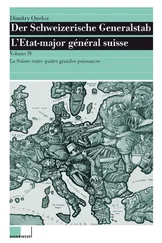In rapid-fire Spanish, the special envoy ordered one of his assistants to accompany Natasha.
Afterward, during the tardy ride to a ceremony in Fort Dimanche, the gulag-like prison that had emerged as a powerful symbol of the perverted form of justice occasionally practiced on the island, a heavy silence wedged the first couple apart in the presidential car. The President and his wife stared out of their respective windows, as if they were each seeing Port-au-Prince for the first time. Stray dogs, colorful shops, barefoot children, muscular men in finely pressed shirts, big-breasted women in tank tops fanning themselves, ever-present potholes, an ocean-blue sky flecked with rice-white clouds. Natasha had to cling to the handle in the car to survive the car’s dips in and out of the giant potholes. With no warning, she began to sing, softly.
Hark! the herald angels sing
Glory to the newborn king
Peace on earth and mercy mild
God and sinners reconciled.
The President laughed.
Very funny, the President said.
So what gifts did the special herald come bearing for our forlorn nation-state?
The President shrugged.
Who was this special envoy anyway?
Our international banker.
What?
Look around you, Natasha. The armored car you’re in is a gift from the Canadian government that no local mechanic can maintain, so the special envoy provides the mechanics. You’ve seen my bodyguards, right?
The President raised his voice, a rare event.
They may be Haitian, but the government doesn’t pay their salaries. We can’t afford to. The special envoy does. He leads something called the United Nations Mission to Stabilize Haiti.
Stabilize? Stabilize us from what imbalance? How exactly are they stabilizing us?
Only they know. Do you know how many soldiers work for me in the Haitian army currently?
Zero?
Zero. You know how many soldiers with blue helmets the special envoy has working for him currently in his army in your beloved pearl of the Caribbean?
No.
Twelve thousand.
No way! Twelve thousand! Correct me if I’m wrong, but that’s a greater armed force—
— than the national police force. I know. We have seven thousand police officers. They are poorly trained, underfinanced, and short fifteen thousand men—
— and women.
And women. Yes. A country this size should have three times more cops than it does, according to the Swedes. They tell me these stats without giving me the resources to change the situation, knowing full well we can’t generate the resources on our own. For example, the international community took our army away from us years ago.
Why can’t we have a new one?
The President got irritated.
We can’t, OK? We can’t.
Natasha grew irritated too. The car had rumbled off Boulevard Toussaint Louverture and into the Carrefour Trois Mains roundabout. She stared at the tips of the fingers on the golden statue of big hands holding a globe in the wan morning sun. The fingers were rotten with rust.
The President continued his lament.
Meanwhile, the special envoy back there has an army, a good one too. With all their small Asians, skinny Africans, and bronzing Brazilians, these blue helmets may look like a ragtag outfit. But do not underestimate them. They benefit from state-of-the-art facilities and weapons. Stuff Haitian soldiers couldn’t dream of. Most of them have seen action in some of the worst wars around the world, Sudan, Iraq, Afghanistan, Congo.
So now they’re in big bad Haiti? Doing what? Defending us against a potential invasion of transforming warrior robot cars? Natasha sucked her teeth. You’re too impressed by these foreigners and their guns and money, she said. You’re not scared of them, are you?
Lower your voice, he said.
You are scared!
Let it go.
Lord have mercy, why are you scared of these people?
You don’t know what you’re talking, Natasha. You don’t know these people.
What’s to know? They spend more money on weapons than food and medicine. That says all I need to know about them. After that, what makes them special? They put their pants on one leg at a time like us. They bleed like us. Get hungry like us. One thing you have that they don’t is that you are Haitian and they are not. You were democratically elected to lead this country. Twice!
You don’t know what they can do, the President whispered. You don’t know what they have done. You just don’t know.
What don’t I know?
You just don’t know.
Well, tell me then.
You just don’t know, he said.
Then the President began weeping. Oh Lord, Natasha thought. He had his back turned to her. The limo was dark. She noticed the smell of vanilla for the first time. Nice move, driver’s wife, she thought. The President was looking at his hands. His head hung low. For once, Natasha didn’t judge the old man or calibrate how she should react to him. She did what felt natural. She slid across the seat in the back of the limo and she hugged him. He embraced her with the grip of a drowning man, tearing her blouse a little. The President sobbed like a child on her shoulders. Fat tears streamed from his eyes and down her back. They gave her chills.
Sweetheart, she said, if I agree to marry you, can we leave for Italy, like we’ve talked about, as quickly as possible?
Yes, he said, after a pause. Thus, the rescued became the savior.
Are you sure you can walk away from the presidency?
Yes, he said. It’s just a job. It’s not like it was a vocation, like you and your art. This country took every ounce of everything I have for sixty years. It’s past time I left it to the young turks who want to run it so badly. Like that Destiné boy.
Natasha closed her eyes. She held on to her husband with both hands. Dug her nails into his back. Her heart palpitated like a leaf in a hurricane. Alain, she thought. She bit into the President’s shoulder. What will I tell Alain?
Less than two weeks later, the apocalypse landed on Haiti. Alain Destiné, at first, was the furthest thing from Natasha’s mind. No man ever held Natasha as firmly as the President held her on the tarmac after the earthquake. Natasha had never before found herself needing to be held so much in her life. She stood in a white fog under a sad sun on a shattered airport’s tarmac on a dog of an evening. She couldn’t see. She couldn’t hear. She couldn’t understand what had happened, why everyone around her was dead or broken or bleeding. Or where her future went. She felt as though God had swept down and withdrawn all love from around her. She felt cold, man. Freezing. But here was this man, her husband, the weakest man she’d ever met. He was keeping her upright because her legs were failing her. He seemed the picture of good health. His arms felt firm, like bent steel, around her waist. The man she believed was a big baby with a job that was way too big for him was, in her most freaked-out hour, strong and confident and capable of holding her up, nursing her toward feeling confident she would actually live to find out what happened to the world.
You’re alive, Natasha babbled. You’re alive!
Yes, the President said, and not the worst for wear either, all things considered. Come on. You’re hurt. We have to get your injuries checked out.
With alert eyes, a becalmed Natasha sat on a stretcher and drank slowly from a bottle of water. A cheery blond medic worked on her bleeding knee and twisted ankle. Is this OK? he said very politely each time before he touched her knee. She barely spoke or understood English, but she could get his drift and nodded. A scene developed around her as a pink dusk fell on Port-au-Prince. Americans. They were everywhere. They were blond, or of African descent; some of them even were women. In her short time in the art world in Port-au-Prince, she’d already learned to tell the difference between Americans and Europeans, no matter their ethnic origin. They walked into rooms differently and made eye contact differently when they spoke, especially to locals like her. These were definitely Americans, and they were fluttering down from the sky, like dollar bills in her dreams of massive wealth. The soldiers, and these were definitely military personnel, wore airplanes on their uniforms and jumpsuits. They surrounded the President, making presentations, explaining action plans. There was a group hunched over laptops. They spoke to the heavens. They guided airplanes, helping them find landing patches on the ruined tarmac. There seemed to be a backlog of airplanes trying to land in Haiti. This scared her. She bit her lower lip.
Читать дальше












